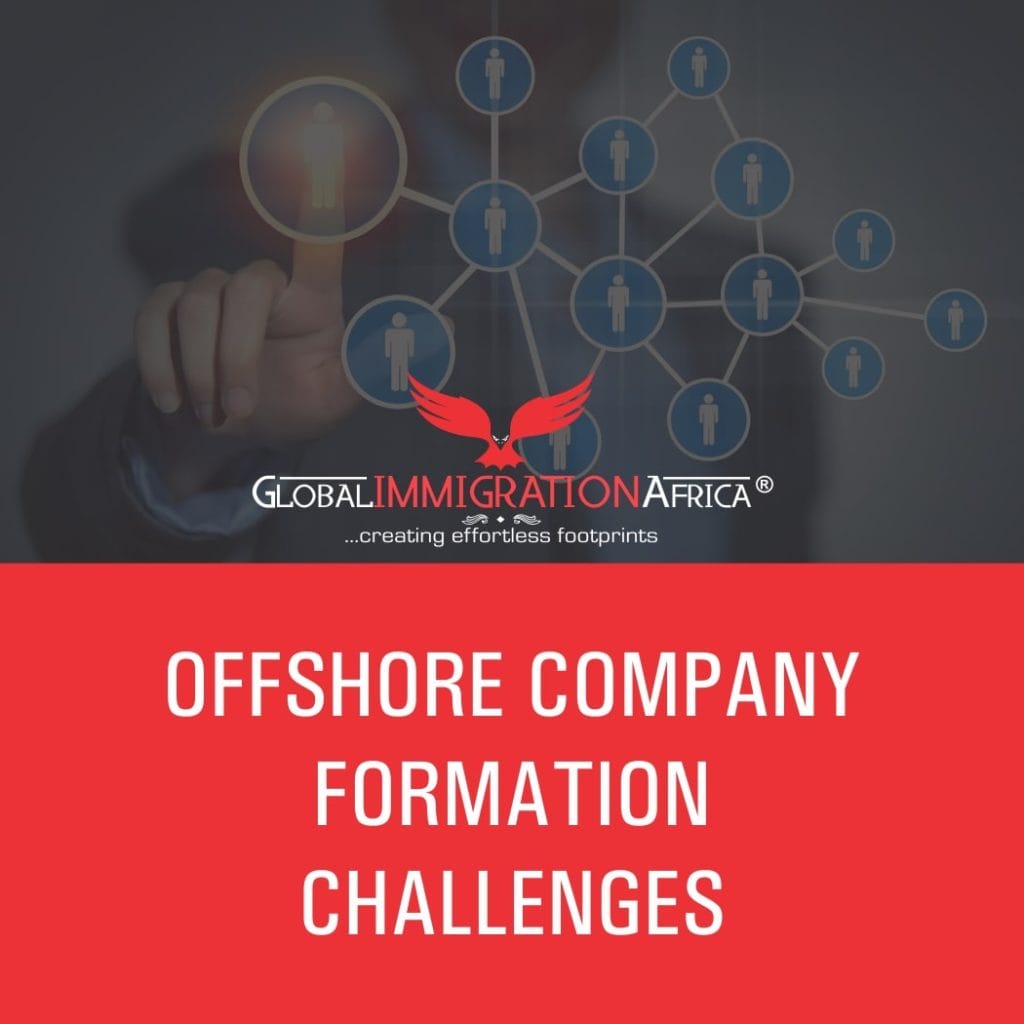We have compiled a list of 4 common challenges that are faced when starting an offshore company
Branch (Foreign) Company
Register an External (Foreign) Company
A foreign or external company is a company incorporated outside of South Africa, irrespective of whether it is a profit or non-profit company or carrying on business in South Africa. A foreign company is prohibited from offering securities to the South African public unless it follows the specific provisions of the Companies Act, 2008, relating to offers to the public.
A foreign company is required to register as an “external company” with the CIPC if it conducts or intends to conduct business in South Africa. Section 23 of the Companies Act, 2008, lists a series of activities which will be regarded as conducting business.
This list includes:
- Holding a meeting or meetings of shareholders or board of the foreign company, or otherwise conducting the internal affairs of the company;
- Establishing or maintaining any bank or other financial account;
- Establishing or maintaining offices or agencies for the transfer, exchange or registration of the foreign company’s own securities;
- Creating or acquiring any debts, mortgages, or security interests in any property;
- Acquiring any interest in intellectual property; and
- Entering into contracts of employment.
Section 23 of the Companies Act No. 71 of 2008 (the Act) that came into effect on 1 May 2011, deals with the issue where a foreign company is required to register as an external company in terms of the Act. The legislative framework in section 23 of the Act sets out the level of activities that a company from a foreign jurisdiction is carrying on in South Africa, and in which case must register as a branch. Note that the Act does not use the expression ‘branch’.
As a corollary that follows from this, the question arises whether the registration of an external company will create a permanent establishment in South Africa in terms of the tax legislation. The effect of registration as an external company is that the foreign company is given legal recognition in the Republic. Section 23(1) provides that an external company must register within 20 days after it first begins to conduct business or non-profit activities in South Africa. Section 23(2) goes on to tell you what conduct will make you cross the test in sub-section (1). It stipulates that if you have one or more employment contracts in the Republic or have engaged in a course or pattern of activities over a period of six months, one could reasonably conclude that you intended to continually engage in business and then you need to register.
Section 23(2A) goes on to stipulate a number of activities where the foreign company would not be regarded as conducting business within the Republic. The categories included are establishing or maintaining any bank account, establishing any office or agency within the Republic for the transfer and exchange or registration of the foreign company’s own securities. Similarly included, are creating or acquiring any debts within the Republic, any mortgages or security interests or acquiring property, which also are not regarded as conducting business within the Republic.
This legislative framework is well described by Heather Brownell writing in De Rebus magazine (April 2012 at page 39), “So if a foreign company is engaged in any one of the section 23(2A) activities, that in itself will not necessarily conclusively evidence the intention to continually engage in business. The activities listed in section 23(2A) could, however, be indicative factors that the company is ‘conducting business’. Each of the activities listed in section 23(2A) that the foreign company is engaged in or is conducting in South Africa would have to be considered in the light of its broader activities in South Africa to determine whether or not the foreign company is conducting business for the purposes of section 23(1).”
In Binding Private Ruling 102 (issued 4 May 2011) the South African Revenue Service (SARS) considered the question in the context of registering as an external company in terms of section 322 of the old Companies Act of 1973. The facts in this matter were that the external company would advance subordinated interest bearing loans to companies incorporated in the Republic and subscribe for preference shares in these companies. Participation in the external company was reserved for foreign investors only. The external company would be managed by a board of directors, which would conduct board meetings in a foreign country, and conduct the affairs of the external company in accordance with predefined investment objectives and strategies. Investment advice would be given by a third party investment adviser which also would not be situated in the Republic. The external company applied for the ruling on the basis that it would not be resident in South Africa, as its place of effective management would be located in a foreign jurisdiction and so it would not create a permanent establishment. But it did have to register as an external company and as a consequence was a resident of South Africa for exchange control purposes.
SARS’s ruling was that the registration as an external company would not create a permanent establishment for this company.
The ruling was based on the assumptions that:
- The place of effective management was located in the foreign jurisdiction.
- It did not have any employees or conduct any business activities in South Africa, other than the maintenance of its external company status for exchange control purposes.
- It did not have a dependent agent operating on its behalf in South Africa.
The issue is that the test for whether such a foreign presence or branch constitutes a permanent establishment is distinct from the external company test in section 23 of the Act. In terms of international tax law, where an enterprise carries on business in two distinct jurisdictions, the profits of a Contracting State are taxable only in that State, unless the enterprise carries on business in the other Contracting State through a permanent establishment situated there. Only profits attributable to the permanent establishment may be taxed in the source state.
If we look at an indicative double tax treaty (such as United Kingdom), Article 5 stipulates that a ‘permanent establishment’ is a fixed place of business through which the business of an enterprise is wholly or partly carried on. It then continues in Article 5(2) to specifically include a place of management, a branch, an office, a factory, a workshop, a mine, an oil or gas well, a quarry or any other place of extraction of natural resources, and an installation or structure for the exploration for natural resources. But it is clear that the permanent establishment needs a place of business, which is fixed (that is a degree of permanence) and that the business of the enterprise is carried on at the fixed place of business. The definition of a permanent establishment for domestic law is contained in section 1 of the Income Tax Act No. 58 of 1962, which refers one to the concept as it is defined from time to time in Article 5 of the OECD Model Tax Convention. However, one will have seen from what has been said above, that the test applied by the SARS in the context of the permanent establishment is quite different from the ‘conducting business’ that the Act looks for to require registration as an external company.
GIA team are available to assist you redefine your business operation! Get in touch with us

